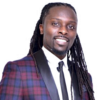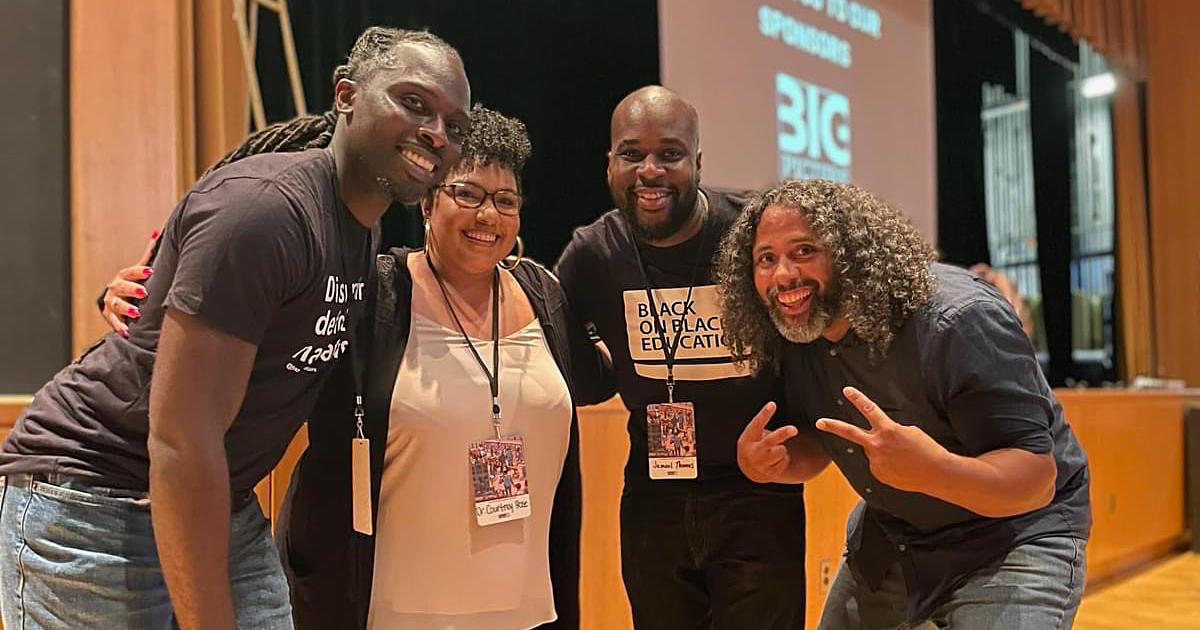In honor of Black Music Month, I’d be remiss if I didn’t take time to recognize the 50th anniversary of Hip-Hop and the significant impact that the culture has had on my life as a student and an educator. For as long as I’ve been on this earth, hip-hop has served as the soundtrack of my life.
Some of my fondest childhood hip-hop memories include my big brother giving me pop quizzes where I had to identify the voices of all nine members of the "Wu-Tang Clan" while listening to the "Enter the Wu-Tang (36 Chambers)" album as a nine-year-old and tag teaming with him to spit the first few bars of “Excursions,” the opening track from "A Tribe Called Quest’s" sophomore album, "The Low End Theory." At the time when I was spitting the verse, I had no idea what the words meant. I mean… I was only eight years old when the song was released. Reflecting back, I understand what Q-Tip alludes to when he says, “Well Daddy, don’t you know that things go in cycles, the way that Bobby Brown was just amping like Michael (Jackson).” He’s bringing light to the historical origins of rap music and the manner in which hip-hop culture has evolved across multiple generations.

You Never Thought Hip Hop Whould Take it This Far
Speaking of the excursion that hip-hop has embarked on, it’s wild to think that the culture, more specifically rap music, has gone from being deemed by several political leaders and pundits in the early 90s as the biggest threat to society to becoming a multi-billion dollar global industry that transcends racial lines and is now used as a tool in our K-12 schools to help build students’ academic vocabulary, support the social-emotional learning and mental health of students, and shape the pedagogical approaches of teachers. As the late Notorious B.I.G once said, you never thought that hip-hop would take it this far.
- Who would’ve thought that hip-hop artists and producers such as Lupe Fiasco, 9th Wonder, J. Rawls, Mia X, and many others would go on to become professors in the halls of academia?
- Who would’ve thought that learning programs such as Flocabulary, Lyrical Math, and Science Genius would be at the forefront of student learning and see the light of day in school districts?
- Who would’ve thought that Kendrick Lamar (or any hip-hop artist for that matter) would ever win the prestigious Pulitzer Prize and join the ranks of classical and jazz musicians who have historically won this honor?
- Who would’ve thought that there would ever be an annual educator conference that would bring K-12 teachers, school leaders, students, professors in academia, and community members together and be exclusively dedicated to exploring hip-hop education as a tool to advance innovation, scholarship, and instructional practice in our schools?
Well, I’m happy to say that this past weekend, I finally had the chance to achieve one major item on my teacher bucket list. And that was to attend this year’s HipHopEd Conference, which took place fittingly at the birthplace of Hip-Hop ... The Bronx, N.Y.
Looking back at the hundreds of educator conferences I’ve attended throughout my 16-year career in education, I can confidently say that I’ve never had a professional development experience that was as entertaining, spiritual, informative, authentic, and communal as what I experienced at the HipHopEd conference this past weekend.

I got to give major props to Dr. Chris Emdin and the HipHopEd team for curating an amazing professional development experience and always intentionally creating communal learning spaces for educators!
To be in community with the likes of Dr. Yolanda Sealey-Ruiz, Cornelius Minor, Dr. Jason Rawls, Dr. Angel Jones, Dr. Dena Simmons, Dr. Courtney Rose, Shauna Brown, Yaribel Mercedes, Justis Lopez, Dr. Melanie Desmuke-Battles, and so many other incredible educators I’ve admired from afar was easily the highlight of the entire experience.
There were so many gems dropped throughout the day that it would be impossible for me to capture them all in this piece. However, I would like to share a few powerful quotes that really resonated with me.

- “If you live in a black body in this country, you are always self-interrogating. As teachers, we must interrogate our practice and our relationships with trauma” - Dena Simmons
- “Kids aren’t showing to school to listen….they’re showing up to school to connect” - Dr. Meisha Porter
- “I’ve worked in spaces where I’ve been simultaneously cast as too much and not enough.” - Dr. Courtney Rose
- “The power of the black women’s story is that it creates chaos.” - Yaribel Mercedes
- “White wickedness is the expectation of white spaces.” - Dr. Chris Emdin
- “Release the misconceptions around what community looks like.” - Dr. Meisha Porter
- “The one thing that the education system does not want for our kids is their freedom.” - Dr. Yolanda Sealey-Ruiz
Improvisation, innovation, and creativity have always been at the heart of hip-hop culture.
As an art form, hip-hop has always been rebellious by nature and challenged the conventional ways in which we view, process, and analyze art in society. This same rebellious spirit holds true about hip-hop in the educational context. As expected, the HipHopEd Conference was far from conventional. Usually, when I’ve attended educator conferences, I’m dressed up in a suit and tie, struggling to find any Black educators within a sea of white educators, and engaging in inauthentic, socially awkward, transactional small talk with other participants.

This conference is the ultimate freedom dream!
The HipHopEd Conference was the antithesis of all that. As I was taking in the day's events, I kept saying to myself, “This conference is the ultimate freedom dream!” The overall aesthetic was colorful, vibrant, and refreshingly hip-hop ... from the educator presentations to the fashion to the call and response to the youth performances to the cyphers to the intergenerational synergy, etc.

With that said, it’s safe to say that the HipHopEd Conference is the gold standard for educator professional development. Every educator needs to experience this at least once in their lifetime.



